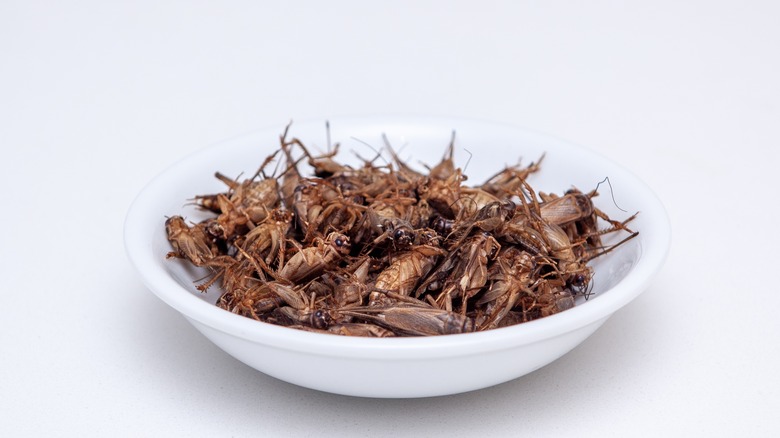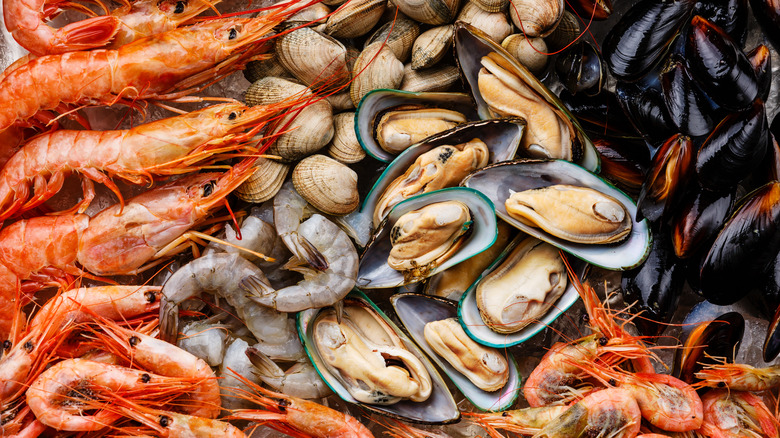People With Shellfish Allergies Should Think Twice Before Eating Insects
People around the world have been eating insects, including crickets, beetles, and even scorpions, for thousands of years, with the majority of insect consumption taking place in Asia and Africa. However, in recent years the conversation around eating bugs has started to shift, with people in North America and Europe beginning to explore the possibility of adding insects to their diets.
According to the Michelin Guide, insects are high in protein and considered an environmentally sustainable option compared to traditional meats like beef, pork, and fish since insects require far less land and resources to cultivate and can reproduce quickly, making them potentially beneficial as the human population continues to grow. Still, many American and European foodies hesitate to adopt the idea because of the creepy-crawly stigma their cultures have attached to bugs over the centuries. Daily Commercial notes that producers in America have found ways around this by creating products that put insects like crickets into unrecognizable forms by grinding them into flour, which can then be used to make snacks like cookies, chips, and protein bars. Overall, the U.S. market for insect-based food is growing, but there is one segment of the population that may want to be cautious about hopping on board the global bug-eating bandwagon.
Shellfish similarities
While crickets, ants, grubs, and mealworms are all widely consumed insects, they are not a perfect substitution for more traditional proteins, especially for people with certain allergies. According to r-biopharm, people who suffer from shellfish allergies should take a pass when someone starts passing around cricket chips or fried cicadas. This is because insects are part of the arthropod family along with shrimp, lobsters, and crabs. The shells of both crustaceans and insects contain the proteins tropomyosin and arginine which are responsible for triggering allergic reactions in humans when they are eaten, including hives, swelling, abdominal pain, or even trouble breathing. The Asthma and Allergy Foundation of America notes that while the U.S. Food and Drug Administration (FDA) advises anyone with seafood allergies to avoid insect protein, it is likely that this approach is overly cautious. While issues could arise, it is likely that only people who have allergic reactions to shellfish or crustaceans need to avoid consuming insects.
If you are allergy-free, you should not face any unusual risks from consuming whole or processed insect proteins, but caution is still advised. It is commonly recommended to only eat insects farmed for consumption and to make sure they are thoroughly cooked before eating them to avoid consuming parasites or harmful bacteria.

